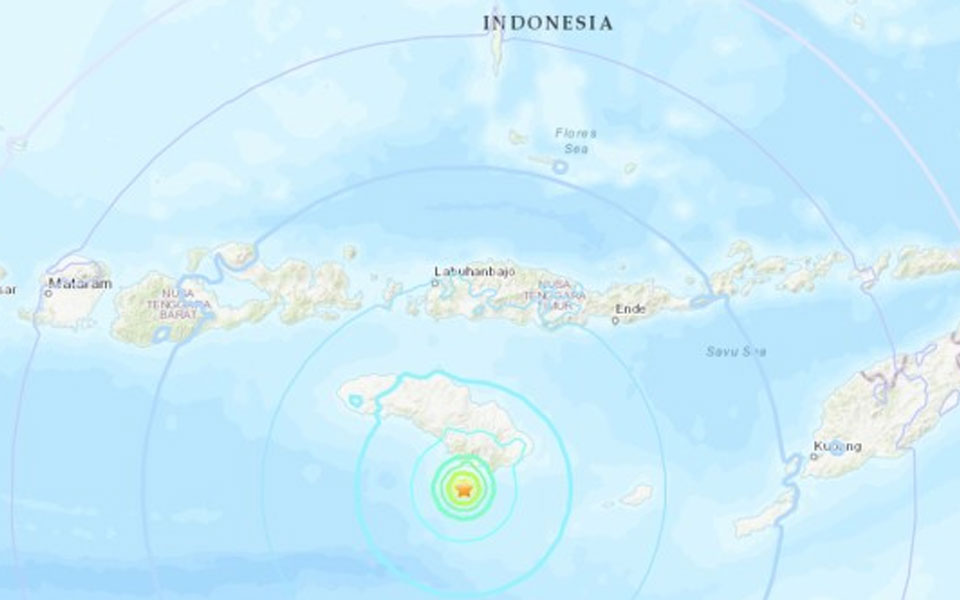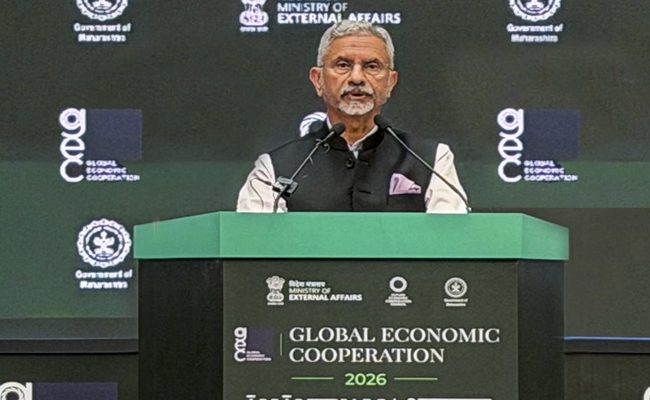Jakarta, Oct 2: An earthquake measuring 6.0 on the Richter scale rocked Sumba island of Indonesia on Tuesday, barely four days after a 7.5 magnitude quake hit its Sulawesi island triggering a tsunami and killing nearly 900 people.
No tsunami alert was issued on Tuesday and there was no report of damages so far, an official said.
The meteorology and geophysics agency said the quake hit at 7.16 a.m. at a depth of 10 km under the seabed with its epicentre 66 km southwest Sumba Timur.
Spokesman of the national disaster management agency Sutopo Purwo Nugroho told Xinhua that the quake triggered panic but did not result in damages.
Indonesia sits on a vulnerable quake-stricken areas called the Pacific Ring of Fire, making it prone to earthquakes.
Let the Truth be known. If you read VB and like VB, please be a VB Supporter and Help us deliver the Truth to one and all.
New Delhi (PTI): India supports a Myanmar-led and Myanmar-owned peace process that can deliver lasting peace and development for all in the Southeast Asian country, External Affairs Minister S Jaishankar said on Wednesday.
The external affairs minister also highlighted the importance India attaches to its ties with Myanmar saying the country lies at the confluence of New Delhi's three key foreign policy priorities: 'Neighbourhood First', 'Act East', and MAHASAGAR (Mutual and Holistic Advancement for Security and Growth Across Regions).
Myanmar is one of India's strategic neighbours and it shares a 1,640-kilometer-long border with a number of northeastern states including militancy-hit Nagaland and Manipur.
The country has been witnessing widespread violent protests after the military seized power in a coup on February 1, 2021. The military-backed party secured a victory in Myanmar's recent general election.
Jaishankar was speaking virtually at the inauguration of the Sarsobeikman Literary Centre building in the heart of Yangon. The building has been constructed with New Delhi's assistance.
"As the world's largest democracy with 1.4 billon people living together in peace and harmony, India has regularly shared its experiences in federalism and constitutionalism with stakeholders in Myanmar," he said.
"We support an inclusive, Myanmar-led and Myanmar-owned peace process, that can deliver lasting peace and development for all in Myanmar," he added.
Jaishankar said the Sarsobeikman Centre will support the conservation and study of classical and folk literatures of Myanmar, as well as translation, archival work, creative writing, and scholarly exchanges.
"Myanmar lies at the confluence of our three key foreign policy priorities - Neighbourhood First, Act East, and MAHASAGAR including the Indo-Pacific," he said.
"Our multifaceted engagement, includes political, trade, security and cultural cooperation. When it comes to development cooperation, our engagement with Myanmar has been people-centric and demand-driven, aimed towards strengthening local economies and improving lives," the minister said.
Jaishankar said India and Myanmar have been bound together for centuries by spirituality, kinship and geography, as well as by language and literature.
"As Buddhism and Pali language and literature travelled across South Asia, they carried with them ideas, texts, and a shared intellectual heritage," he said.





